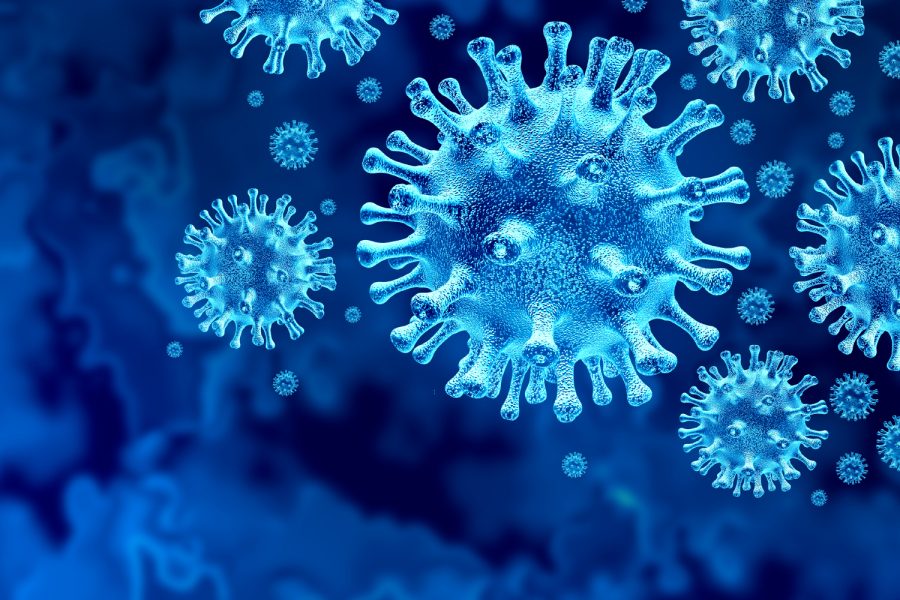Opinion: Empathy can’t cure COVID-19, but it can prevent it
Refusing to practice social distancing is much more incompetent behavior, it exposes a lack of empathy for others.
March 29, 2020
I have since been furloughed, but two weeks ago I was still working weekends for a local retail business. Usually I enjoy these shifts. But every time the doorbell rang, my chest tightened and I felt stiff with anxiety. I wanted to hiss, “Are you serious? Go home!”
Every several minutes, trios of friends, couples, or a wave of women with arms already full of bags came into the shop. They touched every cute and pretty thing they saw, coughed and sneezed as they walked through the racks. People were still trying on clothes.
Most didn’t notice the bottle of hand sanitizer on the front counter when I rang them up.
After each crowd finally left, my co-workers and I would thoroughly sanitize and clean everything. Not only because we were fearful of the novel coronavirus, but we were trying to prevent its potential spread.
We felt we had to assume everyone had this virus, because in reality, everyone is at risk. Two weeks later, most of the public is realizing this — sadly, not all.
This lack of social distancing is exposing more than a refusal to follow protocol from public-health agencies such as the Centers for Disease Control and Prevention. It’s revealing a shortage of empathy.
By March 8, Iowa Gov. Kim Reynolds had announced a total of three confirmed coronavirus cases in Iowa. All were found in Johnson County. In the two weeks since, that number has grown to 336, with 65 individuals now confirmed positive in Johnson County as of Sunday.
These numbers will build, as will — hopefully — the public’s sense of responsibility. At least, you would think.
Even when reported cases in Iowa were in single digits, I was appalled by the masses of people in Iowa City who seemed indifferent. The bars were jammed with noise, restaurants still had waiting lines, and people were still shopping for spring break.
That indifference has thankfully become more unpopular, on several societal levels.
Social media has advocated “stay at home” status updating, and local governments are becoming increasingly more serious in their response to the pandemic. While President Trump’s daily press conferences are evidently breeding grounds for confusion and misinformation, people are making efforts to stay safe. These efforts must continue and strengthen, not only out of following rules, but by caring about our communities.
Students across the country have been displaced, facing homelessness and unemployment because of universities’ responses to COVID-19, including the University of Iowa. Many like me have been furloughed from their jobs, and are trying to plan how to stay financially stable while also practicing social distancing.
This outbreak is emphasizing the many flaws in our economic and social systems, and one of the biggest flaws is refusing to recognize humanity in others.
Our current administration should not hesitate on what to deem the priority. The priority must always be, pandemic or no, the lives of all.
People, both you and I, cannot live if they are not provided vital resources, such as access to safe shelter and food. People are the economy. People are the rising number of cases.
What we are lacking in doing — providing accessible testing, freezing rent, quadrupling pay for grocery-store employees — is all derived from a lack of empathy.
Just as so many have sacrificed the experience of graduation ceremonies, weddings, birthdays, relationships, and witnessing births, surely one can afford not to travel for spring break, or shop for a bathing suit, or gather in groups.
The argument of “can’t” no longer has any meaning. The coronavirus has shown that we as a society can exist and live and work outside of late capitalist systems. This country can afford the sacrifices of prevention.
The honest question is how much this country wants prevention.
Columns reflect the opinions of the authors and are not necessarily those of the Editorial Board, The Daily Iowan, or other organizations in which the author may be involved.





